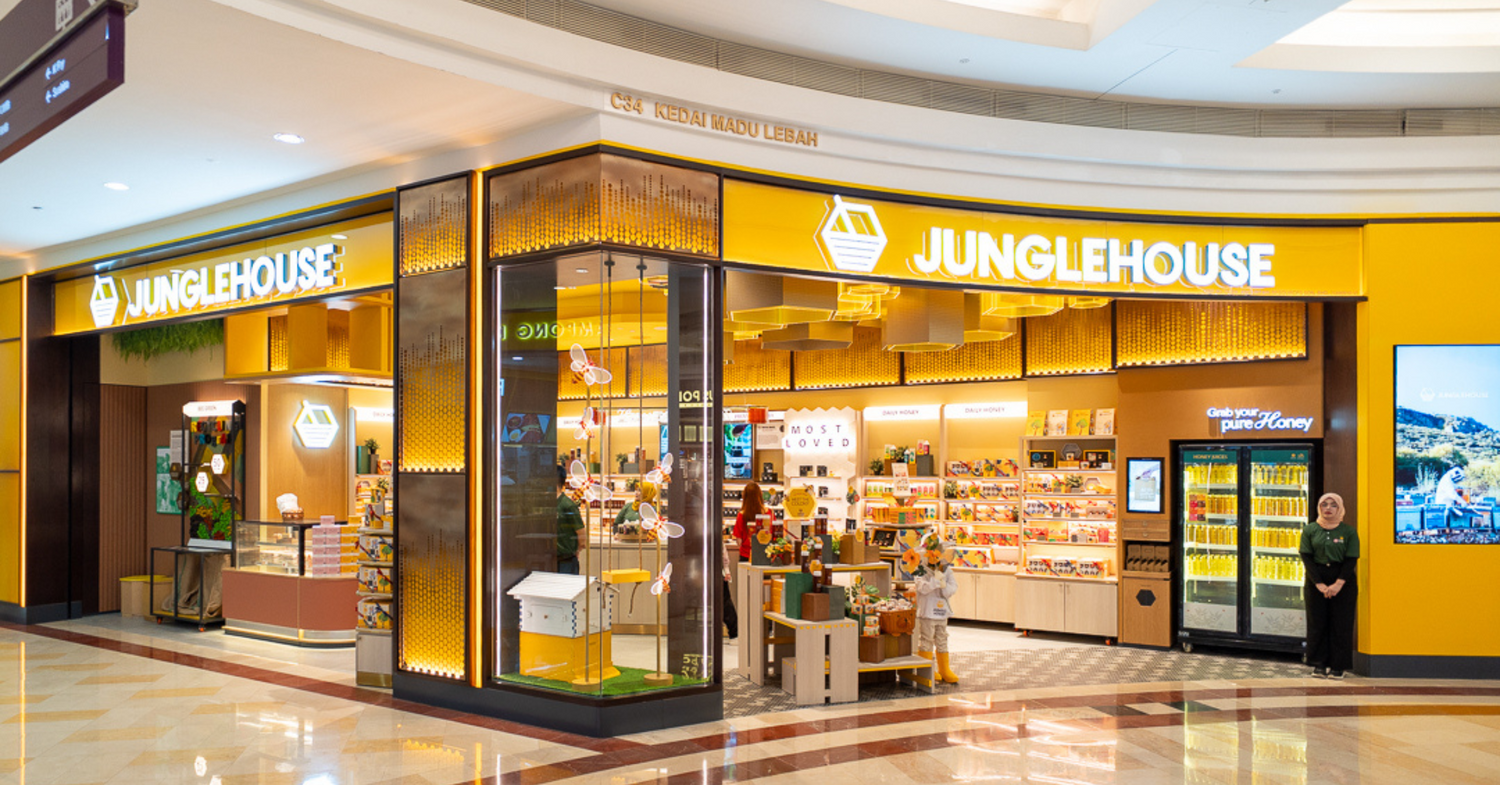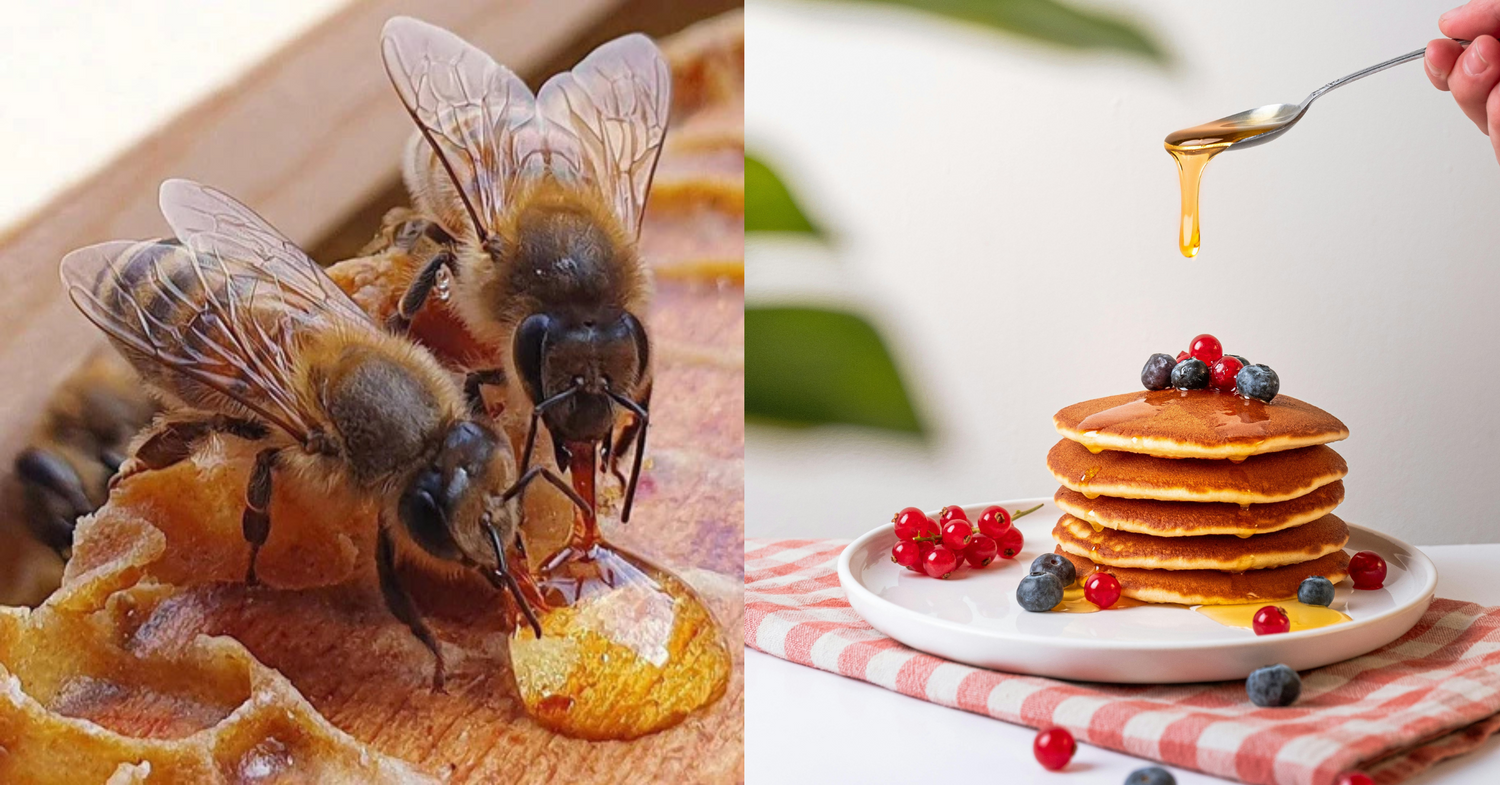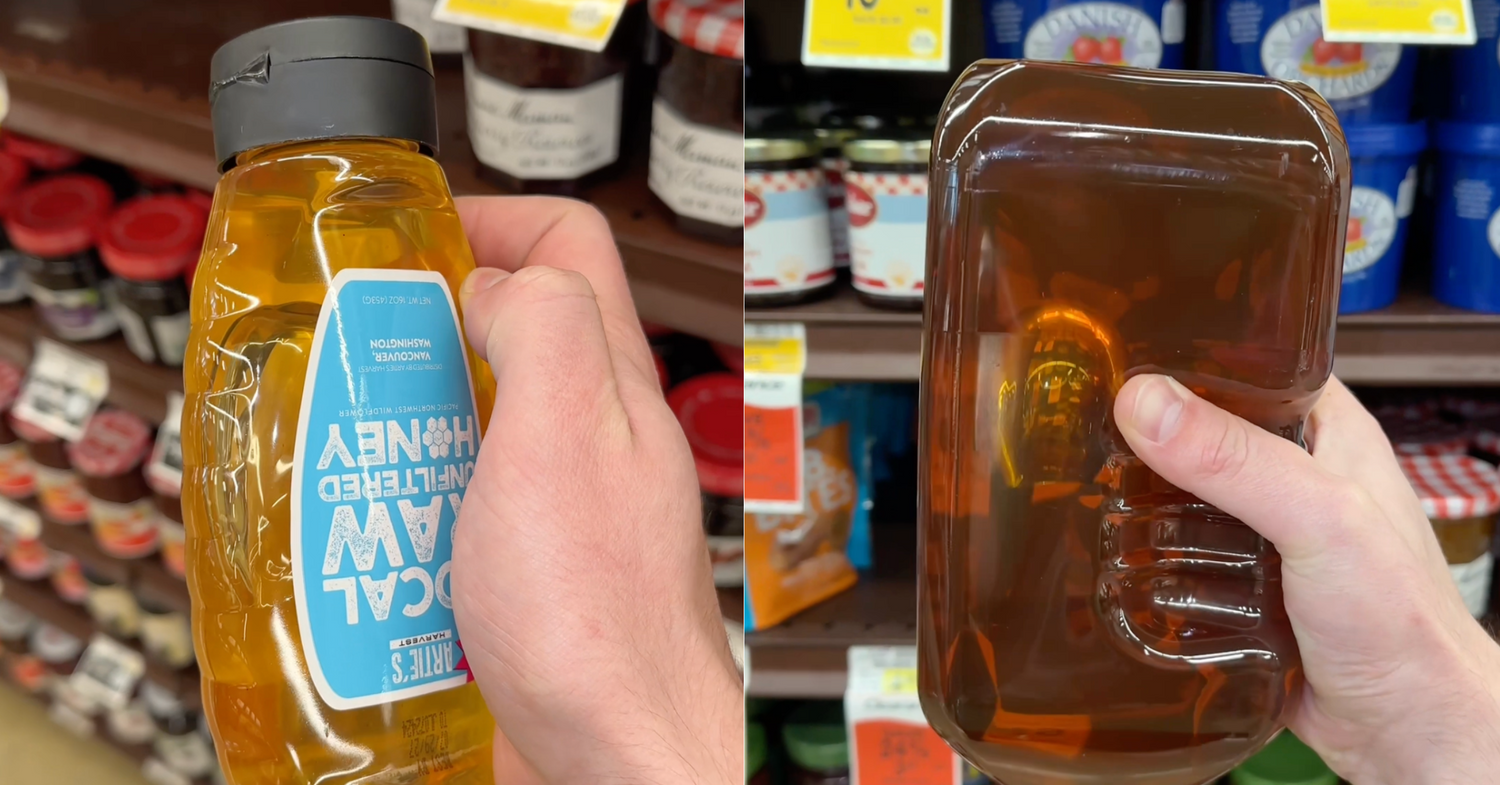While the majority of Jungle House’s honey is sourced from Indonesia, it also gets its supply from Malaysian jungles (All photos: Jungle House)
Often used as both food and medicine, honey has a surprising number of health benefits. Having worked for a Singaporean company that sold honey for many years and having seen how it was widely used in many countries for its nutritional qualities, Ashley Lam Shwu Hoong was keen to promote this golden elixir in Malaysia. She and her husband, Poh Tyng Huei, who has a background in entrepreneurship, decided that they would begin their own business selling ethically sourced honey.
“When we went to Indonesia to meet farmers, our initial aim was to help the villagers. They have a lot of natural resources and by selling [their products], we can help benefit the community. We also started Jungle House because we insisted on getting pure honey to Malaysians as we had seen the benefits and wanted to educate people,” begins Lam.
After establishing their source, they began selling Jungle House products in 2017 at bazaars, roadshows and booths. The first challenge was getting people to trust it. “I think when you start a brand, especially a local brand, it is quite hard to actually get the confidence and trust of the consumer because you are new. Also, we are selling something that claims [to have] medicinal benefits, yet it is also food,” says Poh.

While consumers in the Middle East and Europe often reach for honey to sweeten drinks or to bake, in Malaysia, the more common practice is to use sugar or condensed milk. So, Jungle House was also contending with an ingrained habit. Poh and Lam realised that to introduce honey as an alternative, they had to show customers how to consume it. “We were educating people about honey, letting them try it. But it took a long time for people to actually want to buy a pot because of the cost. So we decided to start making honey juice. It’s a natural drink that is accessible and not expensive,” explains Poh.
Jungle House has expanded its product range from raw honey to include juices, cakes, soaps and even gift packs. And it has remained transparent in terms of its source, as each results in a distinct type of honey. “We tell people the exact location where we get the honey from. We communicate with our farmers and ensure they are using the right beekeeping methods so that we do not contribute to environment degradation,” says Poh.
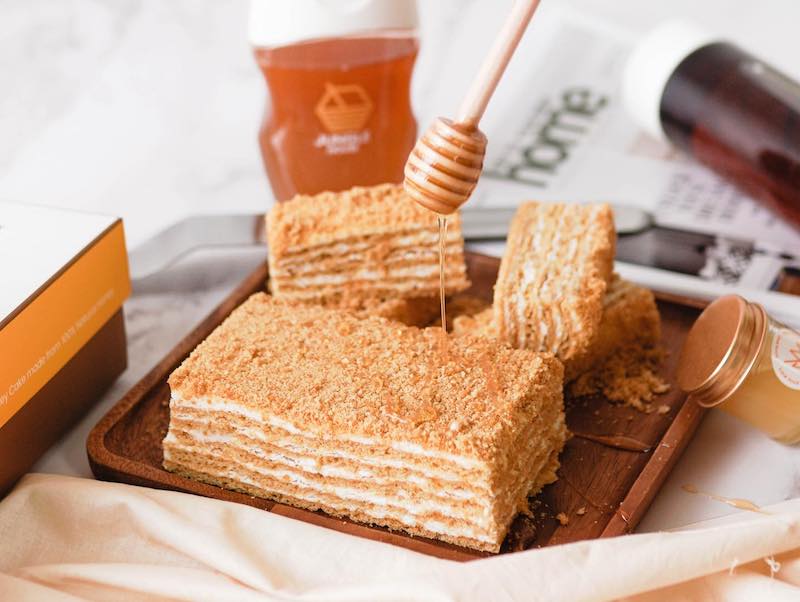
Most of us have watched documentaries or cartoons such as the Bee Movie, which explain the importance of bees in our ecosystem and how we have inflicted damage because of harmful farming practices. But what does it mean to ethically source honey?
“We are proud to employ the traditional way of farming honey. We don’t use machinery or chemicals and we take proper care of the bees and the ecosystem. Commercial farms smoke or kill the bees. We use traditional methods, such as lighting a small fire, so the bees fly away for a little while. If we cut a beehive, we take only one third of it, so there is still a home for the bees to come back to,” explains Lam.
One of Jungle House’s best-selling premium brands is the Royal Black honey, sourced from the jungles of Indonesia. “It’s a wild honey from the Mahoni tree that is over 150m tall. The hives are usually the size of a [Perodua] Kancil. It is a very bitter honey as there aren’t many flowers in the area, but when we did a nutrition test, we found that it is high in calcium, magnesium and iron. It’s very good for middle-aged people,” says Lam.
Meanwhile, the Royal White honey, derived from hives on the coast of Sumbawa Island in Sumatra, Indonesia, has a creamy and floral flavour. Lam says this honey is very good for women, as it is high in vitamin B6.
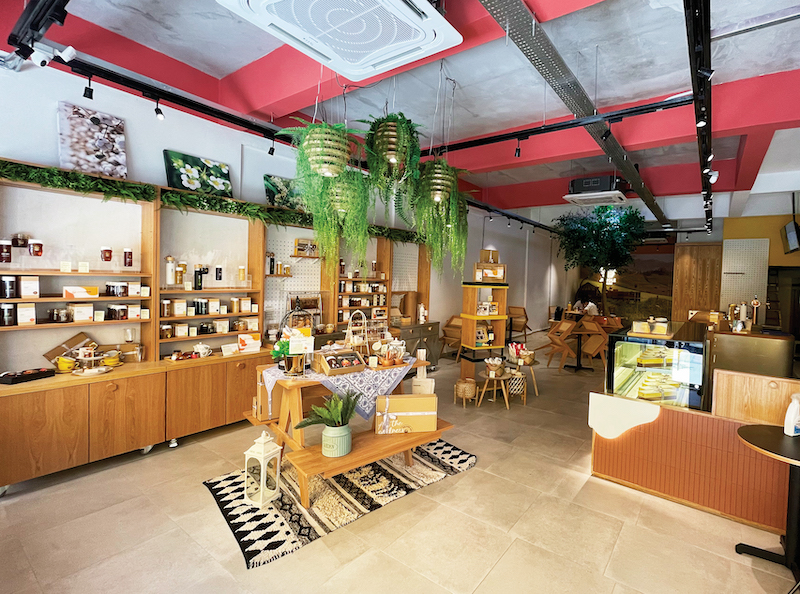
Jungle House’s Heart honey has a distinct strawberry flavour as the bees pollinate strawberry flowers, while Sweettooth honey comes from bees that draw nectar from mango blossoms. Other products in its line-up include Yellow Love, Jungle’s Eye, Pink Lady, Citrus Bloom, Fruit Boss and Roast Cube. “Every batch of honey has a little bit of uniqueness, as the flavours change with the seasons. So, customers who have been with us for three years know our honey is genuine,” notes Lam.
Jungle House opened its first retail store in 2018 in Queensbay Mall, Penang. The good response to its bricks-and-mortar presence has prompted the duo to open nine stores to date. “Each of our new stores is evolving. We’ve gone from pure retail to something that is more like a café,” says Poh. Their latest store, opened before the Movement Control Order 3.0 was imposed, is on Jalan Telawi 3 in Bangsar, Kuala Lumpur. It has a retail section that displays products for sale as well as a café where you can sample honey-laden treats.
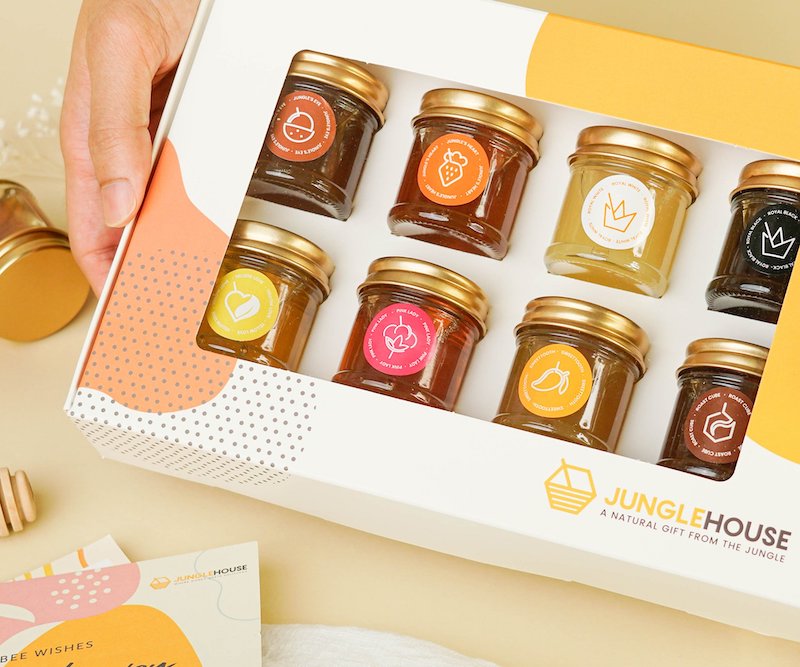
While the majority of Jungle House’s honey is sourced from Indonesia, it also gets its supply from Malaysian jungles. The husband-and-wife duo hope to expand their business to Singapore, then Thailand. As they expand, they intend to source honey from local farmers, so that 20% of what they sell in a country will be produced by its own bees.
The series of lockdowns as a result of the pandemic has been quite disruptive for business as most of Jungle House’s stores are in large malls. “I think it’s true that when you lose something, you gain something as well. Because of Covid, we went online. Our website was launched last November,” says Poh. With people keen to boost their immunity, they racked an impressive volume of sales. There has also been an increase in corporate orders, as an increasing number of people want to gift ethical products that promote health and wellbeing.
This article first appeared on Jul 26, 2021 in The Edge Malaysia.



